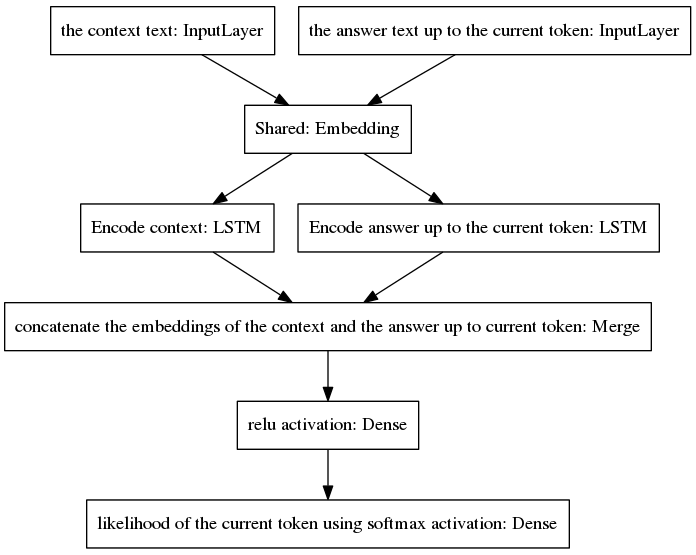End-to-end Adversarial Learning for Generative Conversational Agents
This paper presents a new adversarial learning method for generative conversational agents (GCA) besides a new model of GCA. Similar to previous works on adversarial learning for dialogue generation, our method assumes the GCA as a generator that aims at fooling a discriminator that labels dialogues as human-generated or machine-generated; however, in our approach, the discriminator performs token-level classification, i.e. it indicates whether the current token was generated by humans or machines. To do so, the discriminator also receives the context utterances (the dialogue history) and the incomplete answer up to the current token as input. This new approach makes possible the end-to-end training by backpropagation. A self-conversation process enables to produce a set of generated data with more diversity for the adversarial training. This approach improves the performance on questions not related to the training data. Experimental results with human and adversarial evaluations show that the adversarial method yields significant performance gains over the usual teacher forcing training.
PDF Abstract
